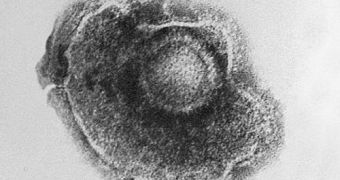A group of investigators announces the discovery of a new possible method of boosting people's memory. The catch is that the technique involves injecting a genetically-engineered virus directly into the human brain.
As such, those who are bad with names, or who easily forget things, might want to wait for a little bit before signing up to receive the treatment. Further refinement efforts are ongoing as we speak.
While the experiments assessing the virus' actions were carried out on unsuspecting lab rats, researchers say that there is a high probability the discoveries could be translated to humans as well.
The animals were thought conditioned taste aversion, which is basically an association that scientists create in a rat's brain between saccharine (which tastes sweet) and a nausea-inducing drug that accompanies it.
Previous studies have demonstrated that, if the aversion is not constantly reinforced, then the rat brain will soon forget the association, even if aversion itself will linger on for more than two weeks.
Scientists also knew that injecting the rats with a substance blocking the actions of a specific brain enzyme called protein kinase M contributes to accelerating the fading process. Now, they created the opposite approach.
This was done by finding a way to increase the activity levels of protein kinase M. The only way the researchers could think about doing so was to create a virus that expresses the genes responsible for boosting protein kinase M production.
They then injected this virus into areas of the brain found responsible for underlying memories. The shots were administered to the rats a week after the aversion conditioning had been applied. By that time, the animals were already beginning to lose their memories.
When memory tests were conducted a week later, the rodents displayed a significantly improved memory retention rate, Wired reports. The reason why this happens is however unknown.
The research team, based at the Weizmann Institute of Science, included experts Reut Shema, Sharon Haramati, Shiri Ron, Shoshi Hazvi, Alon Chen, Todd Charlton Sacktor and Yadin Dudai. Details of the study appear in the March 3 issue of the top journal Science.
Next, the group plans to investigate how the protein kinase M is influencing the behavior of fresh and established memories in the rat brain.

 14 DAY TRIAL //
14 DAY TRIAL //